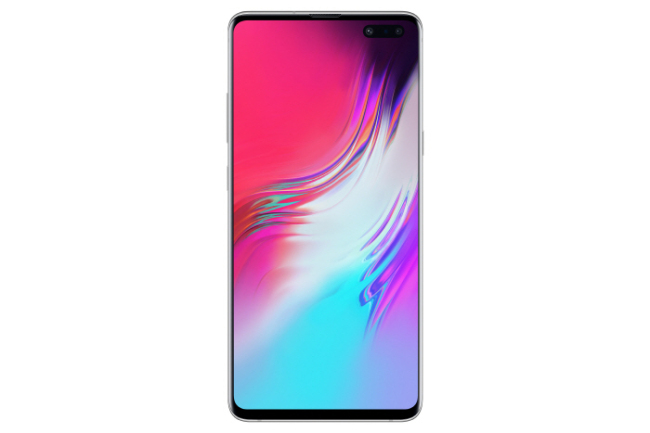With Samsung Electronics’ 5G-powered smartphone having acquired approval for commercial use from the state-run radio verification agency, expectation is high that South Korea is inching closer to soon offering commercial service for the next-generation wireless network.
According to the National Radio Research Agency on Monday, Samsung’s Galaxy S10 5G smartphone passed the agency’s signal verification test. The result was posted on the agency’s website with Galaxy S10’s model number, SM-G977N.
Now that the agency has determined that Samsung’s 5G smartphone is suitable for the market, industry watchers have said the country’s efforts to offer 5G services before any anyone else in the world will pick up speed.
“It is like finalizing the legal procedure for the country’s first 5G smartphone,” said an official from a local telecom company. “Following a trial test, telecom companies would focus on improving Samsung smartphones compatibility with 5G network.”
 |
Samsung Galaxy S10 5G smartphone. Samsung Electronics |
South Korea and the US are vying to launch “the world’s first” 5G service, with Verizon setting the US launch date at April 11. The company said it would offer the service in selected US cities, starting with parts of Chicago and Minneapolis.
Following Verizon’s announcement, the government here appears to be hastening the release of 5G smartphones after postponing its previous deadline in this month. Industry watchers suggest the mobile service will be publicly available a few days before Verizon’s planned launch date.
But some telecom officials expressed concern that the government has been “so obsessed” with clinching the title of world’s first 5G-powered country that there was not enough time for mobile companies to prepare themselves.
“It is true that we have been under pressure to meet the government’s timeline,” said another official from local telecom companies. “Of course, it would have been much better if we had more time to offer a more robust service.”
According to industry watchers here, the commercial rollout of 5G network requires three factors to be finalized by phone manufacturers and mobile carriers: distribution of network frequencies; establishment of new networks; and availability of 5G-powered smartphones.
While the government finished auctioning off 5G network spectrums last year, phone makers have been struggling to meet quality standard for the device. Mobile carriers have also faced difficulties in devising “ideal” pricing plan for 5G amid the government’s pressure to lower the price.
Some experts asserted that even if Korea became the world’s first country to offer 5G services to the general public, its implications would be limited, given the lack of platforms able to capitalize on the hyper-speed network.
“I don’t think we have (yet) seen killer content and lucrative business models for 5G,” said Kim Sung-cheol, a professor from Korea University School of Media and Communication Graduate School of Journalism and Mass Communication.
“Instead of sticking to the title of the world’s first 5G-poweered country, the government should focus on developing content that can boost companies’ productivity and people’s livelihood.”
Despite the rush of the government and the industry, there have been lingering doubts over whether the 5G service would bring revolutionary innovation or substantial benefits felt upon everyday use.
According to a survey by Consumer Insight last year, about 86 percent of respondents said they are not aware of 5G service. Only 18 percent of responds said they would replace the fourth-generation LTE with 5G.
Some telecom officials, however, said it is still important to gain an “upper hand” in the global race to establish the hyper-speed network. Once technological infrastructure is established, specific contents will follow, they said.
“The same thing happened to our race for LTE service in 2011,” said an official from a telecom company. “We didn’t know back then how LTE would be applied to everyday lives, but now it has become a crucial part of our lives.”
(
jasonyeo@heraldcorp.com)






![[Exclusive] Hyundai Mobis eyes closer ties with BYD](http://res.heraldm.com/phpwas/restmb_idxmake.php?idx=644&simg=/content/image/2024/11/25/20241125050044_0.jpg)
![[Herald Review] 'Gangnam B-Side' combines social realism with masterful suspense, performance](http://res.heraldm.com/phpwas/restmb_idxmake.php?idx=644&simg=/content/image/2024/11/25/20241125050072_0.jpg)
